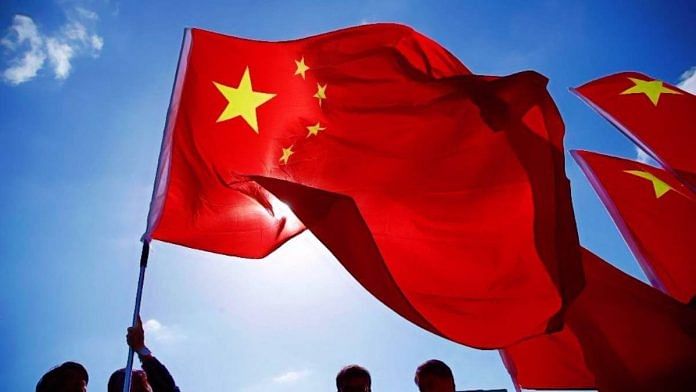New Delhi: China has recorded a quarterly deficit in foreign direct investment (FDI) for the first time, while property prices in over two-thirds of its 70 major cities continue to dip and manufacturing indices show a contraction for the month of October – highlighting the challenges facing Beijing in restoring economic growth.
Direct investment liabilities – a measure of FDI that includes companies’ retained earnings in China — hit a deficit of $11.8 billion for the July-September quarter, according to data released by the State Administration of Foreign Exchange (SAFE). This is the first shortfall since SAFE began compiling quarterly data in 1998.
Foreign investors pulled out more money from China than they put in, through a variety of tools including repatriated profits, repaid intra-firm loans and asset sales, The Economist reported on 11 November. A report by the Peterson Institute for International Economics (PIIE), a US-based financial think tank, suggests that foreign investors are now large “net sellers” of existing investments in China and repatriated funds to the tune of over $100 billion in the first three quarters of 2023.
Another area that has been facing challenges, real estate, has not only been facing staggering losses as reported by ThePrint earlier, but also a consistent dip in property prices in the top 70 large and medium-sized cities in China. New home prices in China for these cities fell for the fourth straight month in October, with prices falling in Beijing, Guangzhou and Shenzhen according to the National Bureau of Statistics of China (NBS).
Fifty-six out of 70 cities saw a fall in new home prices in the month of October, up from 54 in September, and 67 saw a decline in existing property prices, up from 65 in September – showcasing the continued challenges for a sector that formerly accounted for a quarter of China’s economic growth.
According to Aravind Yelery, an associate professor at Jawaharlal Nehru University, the problems of the real estate sector — which make it less attractive as an investment opportunity — may be a factor in another issue the Chinese economy is facing : domestic capital flight.
In the manufacturing sector, the Purchasing Managers’ Index (PMI) decreased from 49.5 in October to 49.4 in November according to the NBS. A PMI of 50 or above indicates economic expansion, while a number below 50 suggests a contraction.
For the 11-month period between January 2023 and November 2023, the PMI was below 50 for 7 months, including for five straight months between April and August 2023. September, with a PMI of 50.2, was the only month since April that suggested an expansion in the manufacturing sector in China.
The push by the US and Western powers to “de-risk” from Beijing and build resilient supply chains, coupled with the escalation of the trade war between the world’s two largest economies, adds further pressure to China’s economy.
“Institutional investors have been waiting for things to improve but the last 18 months have not looked good for the Chinese economy. It has not looked good for investments, leading investors to start withdrawing their investments,” says Yelery.
The policy focus has shifted from achieving unparalleled growth to mitigation and management of the economy, in order to show a stable GDP growth rate of “4-5 percent” for the foreseeable future, according to Yelery.
“In general, growth has slowed down. As long as it grows at 4-5 per cent a year without requiring large interventions, I believe that the government is all right with it. There is a certain minimum growth limit it cannot go below. However, the focus seems to be on managing the crisis,” he says.
Also read: Decoupling, derisking, China + 1. All Beijing wants is a less hostile, more predictable US
Domestic capital flight
China is facing another challenge – domestic capital flight, especially by Chinese households and private companies. A report by The New York Times estimates that roughly $50 billion a month has been exiting China this year.
The money exiting China has been balanced by the money coming through its trade surpluses. However, the NYT report notes that in the past, such exits of individual wealth has set off financial crises in countries across Latin America. In 2015, China faced an exodus of over $500 billion in capital after its stock markets crashed. Nevertheless, the economy bounced back, with GDP growing by 6.9 percent in 2015 — the slowest in 25 years then — demonstrating its resilience.
Sriparna Pathak, an associate professor of China Studies at O.P. Jindal Global University, says, “The current crisis in its economy has been developing for at least over a year. The renminbi yuan has deprecated by 5 per cent this year, and over the next two years its total share of the world’s economy will shrink by 1.4 per cent.”
“The US tariffs introduced on China in 2017, followed by the pandemic and the zero-covid strategy, have deeply affected its economy,” adds Pathak.
Yelery believes there’s a loss of faith in the realty sector in China, especially as large developers like Evergrande Group and Country Garden have failed to meet their debt obligations in the past three years.
Household savings have gone up by about $1.8 trillion in the first nine months of 2023, while long-term deposits have also increased by $766.12 billion as reported by ThePrint earlier. With the real estate market facing challenges, its position as an investment opportunity has lessened. Yelery points to this as a reason for the domestic capital flight.
Pathak says, “Not much has been done to change investor confidence, despite statements by the government of China trying to woo investors to the country. This is a result of an economic climate unleashed by President Xi’s focus on retaining political control over the economy.”
Also read: There’s a new way to study US-China divorce. Memes



